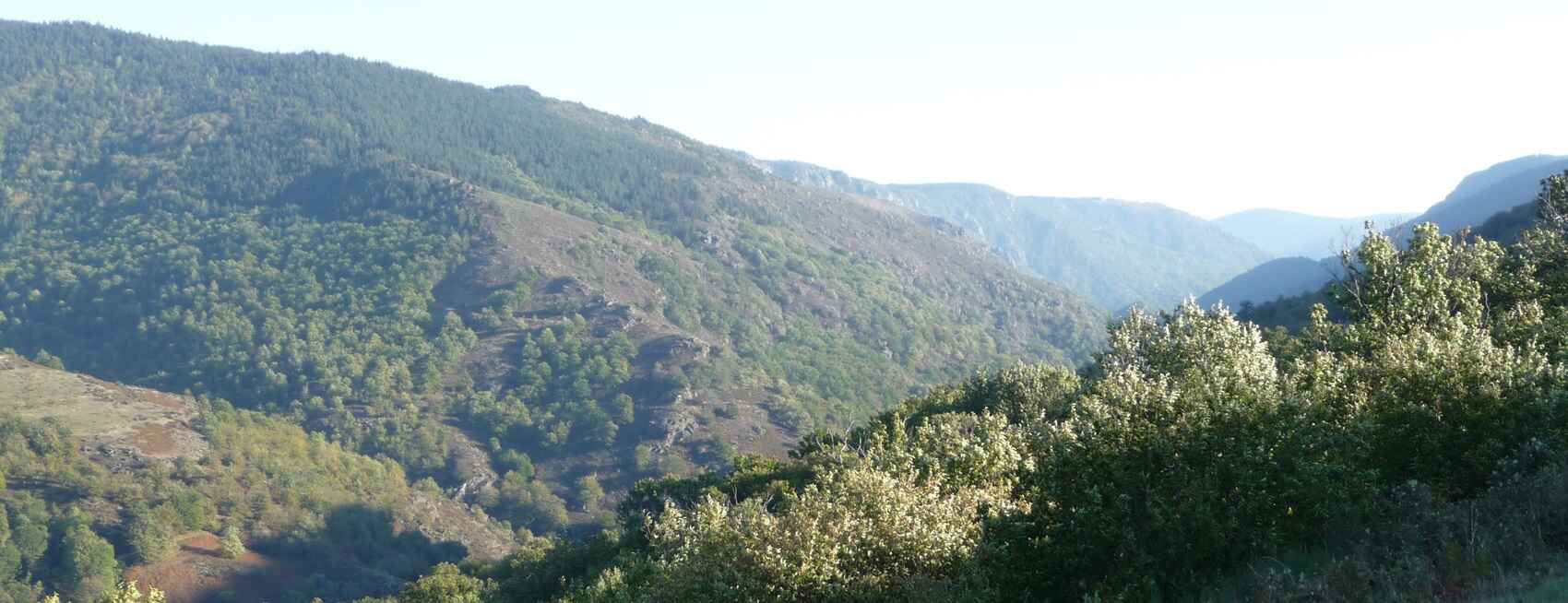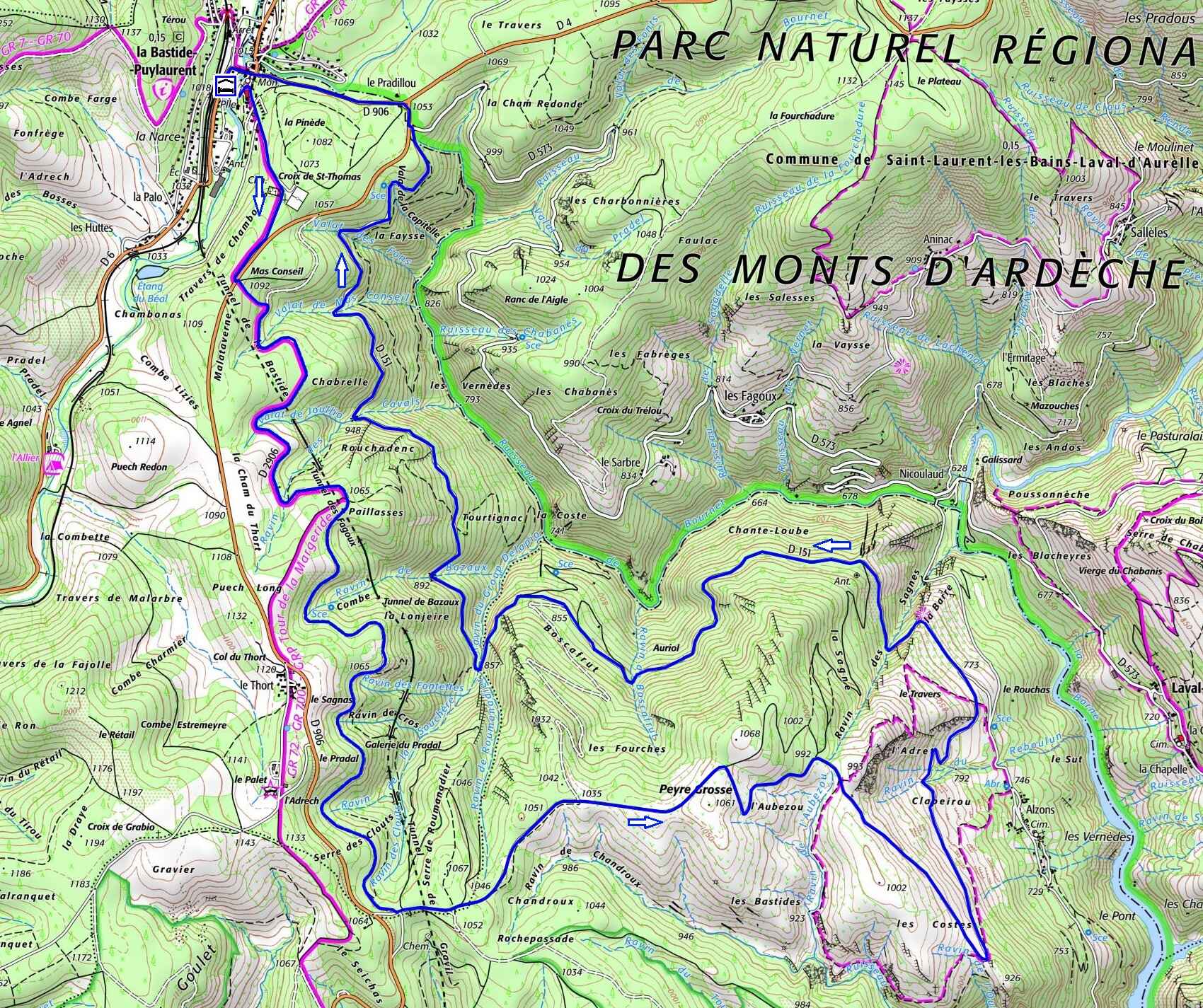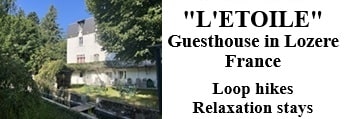20.5km bike tour at La Bastide-Puylaurent |
Leave L'Etoile through the gate, turn left towards the footbridge over the Allier and reach the back of the church. Go up the small road between the stadium and the cemetery, cross the D906 and go down the track to the old road. Turn right and follow this abandoned road for 5km. Turn left, then after 250m keep left and follow this small road to the top, then descend into the Borne valley at Alzons on the D151. Follow this small road until the roundabout of Pradillou. Turn left towards La Bastide. Cross the bridge over the Allier and turn left to L'Etoile.

20,5km - 25km - 27,7km - 30km - 35,2km - 37km - 41,5km - 44km - 48,4km - 57,5km - 59,4km - 60km - 60,5km - 69km - 70km - 76,8km - 77km - 81km - 90km - 95,7km
Google Maps - Google Earth - GPX







 Distance: 20.5km. Maximum altitude: 1086m. Minimum altitude: 753m. Total ascent: 682m.
Distance: 20.5km. Maximum altitude: 1086m. Minimum altitude: 753m. Total ascent: 682m.
IGN maps: La Bastide-Puylaurent (2738E). Largentiere la Bastide-Puylaurent Vivarais Cevenol (2838OT).
Print the route - Bike rentals
The village of Alzons and the Borne Valley: a natural treasure in Lozere
Alzons, nestling on the western flank of the Borne valley, is a typical hamlet lost in the middle of nature, with spectacular panoramic views. The river Borne, whose clear waters meander through craggy granite landscapes and lush green forests. This river offers many idyllic spots for swimming on hot summer days. The surrounding chestnut groves produce top-quality chestnuts and their flowers give an exceptional honey.
Chestnut growing, or castaneiculture, is an ancient tradition in several regions of France, notably Lozere, Ardeche and Cevennes. Chestnut trees flower in early summer. Male and female flowers on the same tree require specific conditions for good pollination, which is generally provided by wind and insects. The chestnut harvest begins in October. The fruit is picked by hand or with specialised tools once it has fallen to the ground. After harvesting, the chestnuts can be dried, roasted or processed into flour, puree or chestnut puree. Chestnut-based products are appreciated for their taste and nutritional value.
Chestnut honey is renowned for its unique flavour and its many virtues. This honey is produced from the nectar of chestnut flowers, mainly in regions where these trees are abundant, such as the Ardeche, Lozere and Cevennes. Chestnut honey is a dark amber colour, often with red highlights. Its flavour is strong, woody and slightly bitter, which sets it apart from other milder honeys. It leaves a lingering aftertaste on the palate. It has a fluid texture, but can crystallise over time. Rich in minerals such as potassium, magnesium and iron, it is also a source of antioxidants. Known for its antiseptic and anti-inflammatory properties, it is often used to soothe sore throats and improve digestion. Ideal with strong cheeses such as Roquefort or Bleu.
